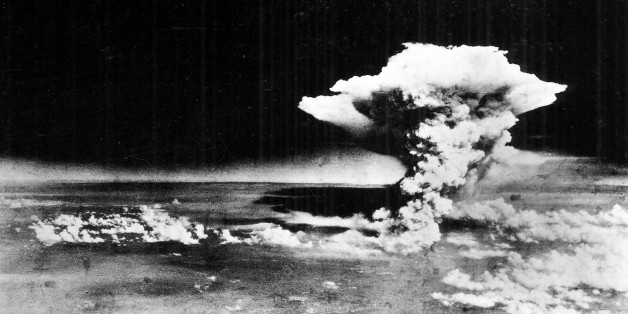
11/10/2016
This month the United Nations has the opportunity to take a major step toward the elimination of nuclear weapons. It is an opportunity that must not be lost.
More than four decades ago, the nations with nuclear arsenals and the world’s non-nuclear states entered into the Nuclear Non-Proliferation Treaty (NPT); the nuclear states — the US, Russia, UK, France and China — pledged that if the states that did not have nuclear weapons agreed not to develop them, they would enter into good-faith negotiations toward the elimination of their nuclear arsenals. During the ensuing years, the three nations that did not sign the NPT — namely India, Pakistan, and Israel — developed nuclear weapons. All of the non-nuclear weapons states that signed the treaty except North Korea have kept their pledge.
Unfortunately, the nuclear powers have not kept their part of the bargain. While the US and Russia have dismantled many of their nuclear weapons since the end of the Cold War, they retain thousands of them, enough to destroy the world many times over.
More importantly, they have made clear that, in defiance of their treaty obligations, they do not intend to eliminate their arsenals. Instead, all of the states that possess nuclear weapons today are engaged in massive upgrades of their nuclear arsenals. The US alone expects to spend $1 trillion on this modernization program over the next three decades.
While the nuclear powers claim that their arsenals only exist to deter the threat of attack from other nuclear states, their actual military doctrines tell a different story. The US refuses to rule out the first use of nuclear weapons, even against states that don’t possess them. Russia plans to use nuclear weapons early on in conventional conflict with NATO. Pakistan similarly threatens to use tactical nuclear weapons against Indian conventional forces. India threatens to retaliate with strategic nuclear forces.
In the face of this intransigence, most of the states that do not possess nuclear weapons have decided that they must act. They are not planning to build nuclear weapons of their own, but are demanding that the nuclear powers honor their obligations.
In 2013 and 2014, more than 150 countries came together — in Oslo, Vienna and Nayarit, Mexico — in a series of historic conferences on the humanitarian impact of nuclear weapons, to focus attention on the actual consequences of nuclear war. These conferences examined the latest scientific findings, that show that even a limited nuclear war, involving less than 0.05% of the world’s nuclear arsenals, would cause catastrophic climate disruption across the planet and lead to a global famine that could put up to 2 billion people at risk of starvation. Other data shows that a large scale war between the US and Russia would cause even more profound climate disruption, producing a nuclear winter that would kill the vast majority of the human race and could cause our extinction as a species.
In response to these warnings from the scientific and medical community, more than 100 nations have met in Geneva over the last five months at an Open Ended Working Group, convened by the UN General Assembly, to consider how to pressure the nuclear powers to disarm.
The recommendation of this OEWG will be presented to the General Assembly this month. A resolution sponsored by Austria, Brazil, Ireland, Mexico, Nigeria and South Africa calls for the UN to convene a formal negotiating conference in 2017 to conclude a new treaty that prohibits the possession of nuclear weapons.
This “Ban Treaty” will not take the place of an actual nuclear weapons convention negotiated by the nuclear powers, which would have to establish a firm timetable for dismantling nuclear weapons, with detailed mechanisms to verify and enforce compliance. But it will create a powerful new norm about nuclear weapons, defining them not as the status symbols of great nations, but as the badges of shame of rogue nations.
Much work will need to be done to use this new treaty to actually get the nuclear powers to disarm, but their fierce opposition to the treaty makes it clear that they are feeling the pressure already even before negotiations have begun.
The non-nuclear weapons states must resist that pressure, and continue their historic efforts to protect humanity from the grave threat posed by nuclear weapons. And the citizens of nuclear weapons states must hold their governments accountable for their unconscionable refusal to meet their treaty obligations and negotiate the elimination of these weapons, which are the greatest threat to the security of all peoples throughout the world.
* José Ramos-Horta, Former President, East Timor, 1996 Nobel Peace Prize laureate
* Muhammad Yunus, Nobel Peace Prize winner; founder, Grameen Bank; Chairman, Yunus Centre
* Kailash Satyarthi , 2014 Nobel Peace Prize Laureate, Founder, Kailash Satyarthi Children’s Foundation
* Sir Richard J. Roberts, Ph.D. F.R.S., Nobel Laureate in Physiology or Medicine (1993)
* Prof. Brian Schmidt, Nobel Laureate in Physics (2011)
* Ira Helfand, co-President International Physicians for the Prevention of Nuclear War, Nobel Peace Prize Laureate (1985)
Source : Huffington Post